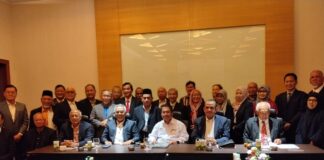By Tan Sri Lee Lam Thye
Currently, there are an estimated 3.5 million people or seven per cent of the population in this country who are above the age of 65.
This group is the most vulnerable in terms of maintaining a minimum standard of living until the age of 77 or so which is the average life span for a Malaysian male.
This means living for another 12 to 15 years after retirement.
Even now, do the ageing population have the financial resources needed to maintain a decent standard of living? And are they emotionally stable to overcome anxiety and feelings of neglect, loneliness and rejection?
Those who are pensionable may find the rising costs of food and other necessities eating into their monthly allowance?
Then there are those who have no pensions but have EPF savings. According to some, about 50 per cent of those who contribute to EPF do not have enough savings to last for their remaining years.
Additionally, the I-Sinar that provided for early withdrawals from EPF has drained their savings.
Added to these are the challenges posed by Covid-19 which have brought into sharp focus the need to build a sustainable safety net for this group.
Besides being financially-strapped, where are they in terms of their other needs which constitute the other C’s—care, concern, capability and capacity? And social connectivity?
After having given their best years of their lives to their families, their employers and to the nation, surely they are entitled to live out their lives with grace and dignity.
In just another 20 years, the ageing population will increase to 20 per cent, proving an even greater challenge to today’s Generation .
It is natural and common for today’s generation to take care of possible eventualities but what about taking care of definite possibilities?
We take care of such possible eventualities as fires, floods, and motor accidents—and take insurance policies to cover the risks. But we do not make such provisions to cover the risks and challenges we will face as we grow older.
Some of such future challenges are meeting the soaring medical bills, coping with the increasing cost of living and owning houses.
With little savings to tide them over, many of the old folks are in dire straits.
For them, there is no safety net, but even where there are the nets have been in tatters.
Meeting the challenge of ageing societies isn’t just for national governments, policymakers, and healthcare providers. It affects everyone who has, or will have, an elder family member or loved one in their lives.
How can the Government help?
For one, it can open up more opportunities for those who are still productive in healthcare, technology, mobility, tourism, entertainment sectors, real estate, housing.
I have previously proposed the setting up of a National Social Security Council (NSSC) to holistically address social security issues affecting the elderly. It’s timely now to establish such a body to conduct a rapid needs assessment to launch an Action Plan for Successful Ageing.
The Council, together with other relevant Government agencies could do the following:
- Undertake a review of the mandatory retirement age, and if feasible, increase it from 60 to 65. Many have more fruitful years in their lives;
- Make it easier and practical for employers to hire and retain older workers with incentives from the government;
- Invest in lifelong learning to upskill themselves and become productive members of society;
- Incentivise and encourage caregivers to encourage more of them to offer their services to those in need.
There is much that NGOs and the community can do too. They can help the elderly maintain a healthy lifestyle by providing facilities for exercise and non-competitive activities. At such events, the elderly will also be able to make new friends who can add to their feeling of self-worth.
This is the second year of the Decade of Healthy Ageing (2020-2030). It’s still appropriate to bring together governments, civil society, international agencies, professionals, academia, the media and the private sector to device comprehensive plans to improve the lives of older people, their families and their communities.
Another important initiative could be the promotion of research that addresses the current and future needs of older people.
In these respects, we can take a cue from Japan which has had many years of experience managing the largest percentage of aged people in the world.
The Global Strategy and Action Plan on Ageing and Health, adopted by the World Health Assembly in 2016, ensures that the global response to population ageing is aligned with the ambitions of the Sustainable Development Goals. The Global Strategy proposed four years of work to prepare the world for a decade of concerted, catalytic and collaborative global action – the Decade of Healthy Ageing (2020–2030).
Thinking out of the box, and feeling and acting towards age and ageing is possible, necessary, important and critical. We can help make it happen now.
It is clear that early action yields the greatest benefits. The earlier we prepare, the better.
TAN SRI LEE LAM THYE
CHAIRMAN
ALLIANCE FOR SAFE COMMUNITY.


